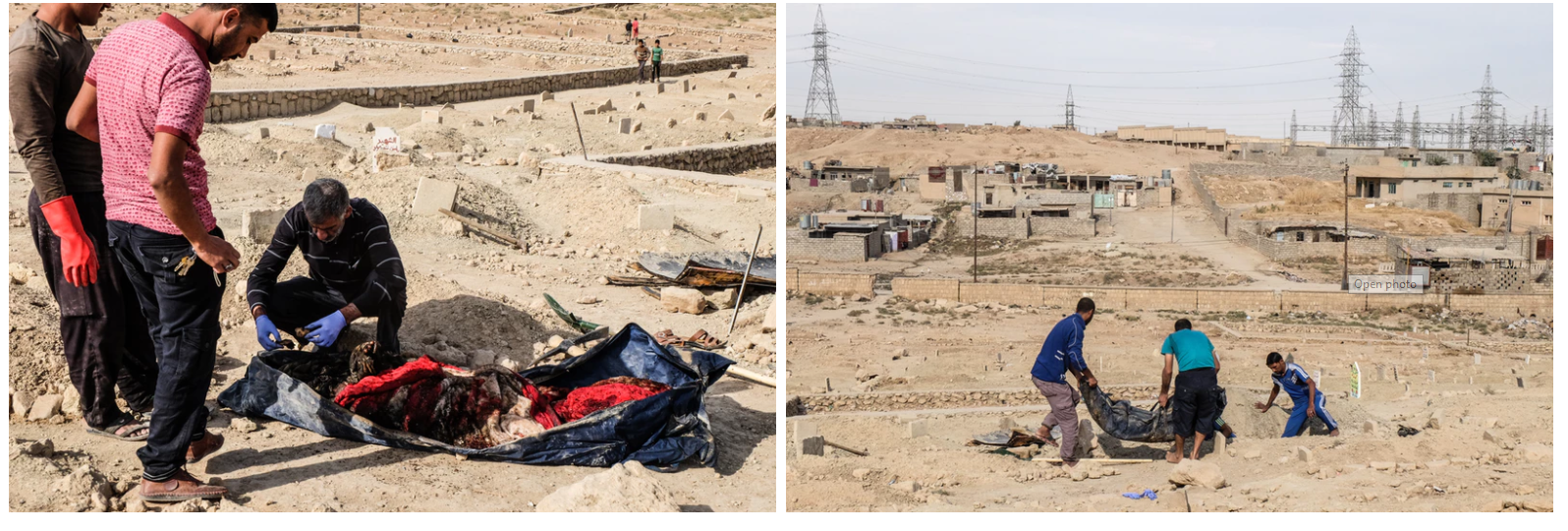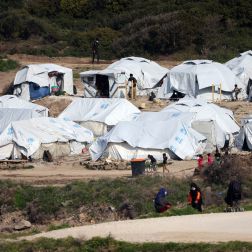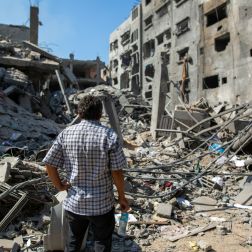- 3 mins read time
- Published: 23rd November 2017
Digging in the dust
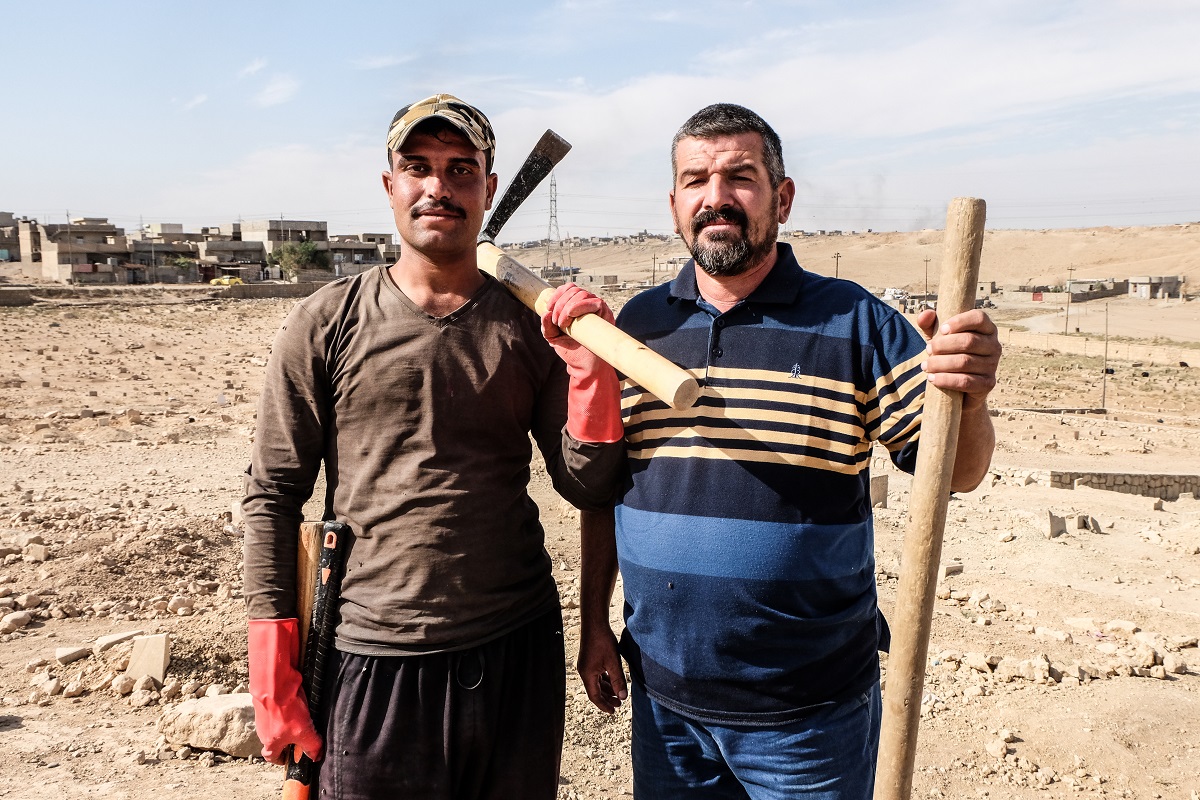
The soft soil falls away easily as the sharp metal hits the ground. Again and again Falah Abiya raises the axe above his head and brings it down on the compacted earth. Two of his colleagues stand waiting beside him, stepping in with shovels to remove the soil he has loosened.
The blue skies, dotted with clouds and the mid morning autumn sun do not match the tough work that Falah and his team have to do in Mosul today. They are digging graves in a large cemetery in the west of the city. “We have twenty-two to dig today”, Falah comments in between swinging his pick Axe.
Falah’s team work for the department of Forensic Pathology, which is being supported by Mosul General Hospital. Although they usually spend their days digging graves for people who have just died, today their work is of a different kind. They are working on a special programme to help the state identify bodies that have already been buried.
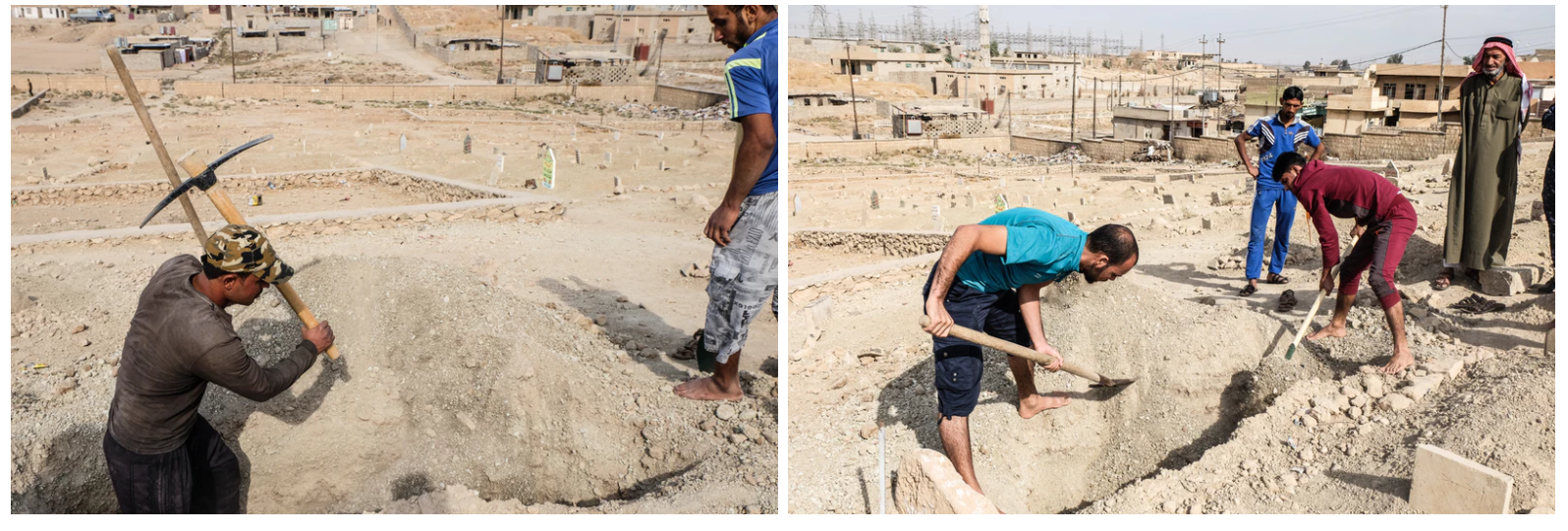
“The work we are doing here is very sensitive but very necessary”, says Dr Aziz, who works at Mosul General Hospital. “It’s important we know who has died and why. We must make sure the people buried in those graves are the people we have been told they are. Once we have recovered a body we run DNA tests to check.”
Today Hamid Hassan Jassim stands watching Falah’s team at work; the grave belongs to his brother Mahmud. “He died in a suicide bombing at a checkpoint. His head was missing when we buried him,” he says. Suddenly Falah’s axe hits something hard and he uses his hands to expose a wooden plank which he then pulls from the hole. Three of the team carefully lower themselves into the hole and slowly pull out a black plastic body bag.
Everyone is quiet as the team unzip the plastic bag and reveal what is left of Mahmud’s body, wrapped in a red blanket. The forensic examiner pulls on rubber gloves and carefully opens the blanket before inspecting its contents. He immediately confirms the head is missing and through his examination he also suggests that the man did in fact die in an explosion. He takes samples and zips the bag back up.
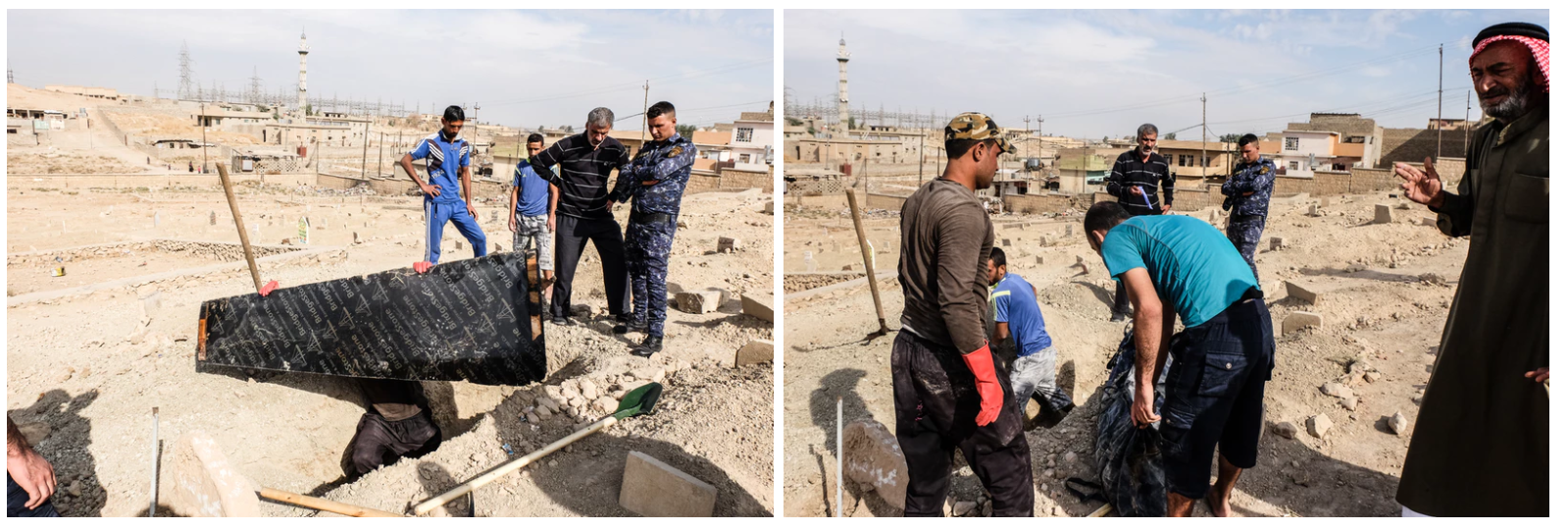
“Oxfam has supported the hospital in a lot of ways since Mosul was retaken.” Says Dr Aziz. The axes Falah and the team are using were donated to Oxfam and then the hospital by Irish Aid. As were other essential items such as mosquito nets which are being used to keep the flies off of burns patients and those with extensive wounds. “We hope we will continue to receive support from Oxfam so that we can keep doing this essential work and taking care of people who need urgent medical care.”
Mosul General Hospital sees an estimated 800 patients a day. As well as providing the pick axes, Oxfam has supported the hospital with essential items such as water tanks, bottled water, emergency food rations, blankets and mosquito nets.
Hamid stands and watches Falah and his colleague Sadam Hamadi carefully lower his brother Mahmud’s newly wrapped body back into the ground, re-covering it with the soft soil. They then throw their shovels and pick axes over their shoulders and make a move to the next grave. They have twenty one more to dig today.
